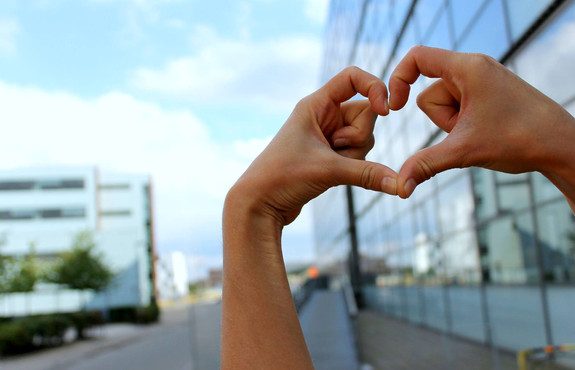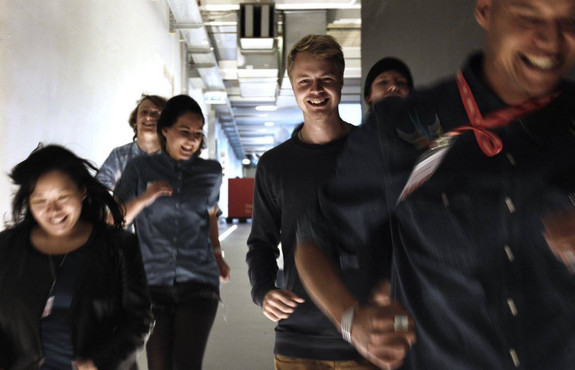Facts
15 March at 12 noon (quota 2)
5 July at 12 noon (quota 1)
Bachelor's degree programme
The bachelor programme is a three-year undergraduate degree programme for creatives who want to work with their head as well as their hands. You will receive theoretial and practical training in design methods, concept development and materials, and you will test your knowledge on real-life cases and by doing your own experiments.
Exchange
During the programme you will be able to travel and go on exchange.
Study programmes
Accessory Design
Accessory Design allows you to create jewellery, shoes, bags – all those things that we label accessories og wearables; decorative and functional objects that we wear close to the body. In the programme you will experiment with materials, form language, craft techniques and digital tools such as 3D computer design. At the same time you will learn to develop concepts, products and business ideas that are sustainable and socially responsible.
Communication Design
The Communication Design programme teaches you to design communication for a specific purpose. This could be wayfinding in a hospital setting, a game to promote human interaction, or a user-friendly digital platform – just to give a few examples. You learn to work with analogue and digital media and how the right concept development and strategy can enable you to design communication that engages people.
Fashion Design
The study programme is for students who enjoy working with fashion and sustainability. You will be experimenting with new shapes, materials and production techniques and learn how to develop concepts and business ideas. The fashion and textile industry is one of the world’s most polluting industries, which is why we place great emphasis on making sure that we train you to design for sustainability.
Industrial Design
If you are interested in designing products, e.g. furniture, cars or other everyday objects, a bachelor in Industrial Design is the way to go. The programme teaches you to consider aspects related to design, business, sustainability and production and how you go from ideation and concept development to shaping and producing the objects we use on a daily basis.
Textile Design
In the Textile Design programme you get to develop the materials of the future based on the challenges of the present. Experiment, colour and material construction are key concepts, and we test materials in various contexts such as body and space and also strategically. The textile workshops are the heart of the programme and where you will develop your digital and analogue skills. We discuss and use professional and scientific theory and methods and work with professional design companies.
Check out the different study programmes below to read more about what you learn and how - and your potential career opportunities.
Find your study programme
Your typical week
A lot of students work on their own projects parallel to the teaching. You can use the school’s workshops, which are open 24/7.
Hours
The bachelor's programme is a full-time study. You should expect scheduled activities 3-4 times a week. These mainly take place in the period between 9.15-14.45. There is also project and workshop work, presentations and guidance. Overall, students at Design School Kolding spend an average of 40 hours a week on their studies.
Materials
Students pay a material fee of approx DKK 3,000, which covers basic, common materials such as paint, paper, chemicals, nails, screws, filaments for printing, paper in photo workshop, sewing thread and software. The amount is charged in the first semester and covers all six semesters of the bachelor's programme. You bear the costs of your own materials.
Admission
Therefore we have gathered all the info you need on the 'Admission' page - from how to submit your application to the entrance exam along with answers to the most frequently asked questions.
The deadline is 15 March at 12 noon for quota 2 applicants and 5 July at 12 noon for quota 1 applicants. You apply via optagelse.dk
PLEASE NOTE: The language of instruction is Danish
Optagelse
Hvad kan jeg blive?
International udveksling
Contact












